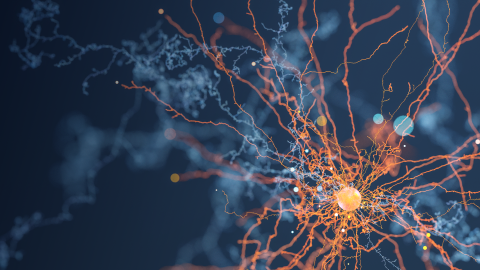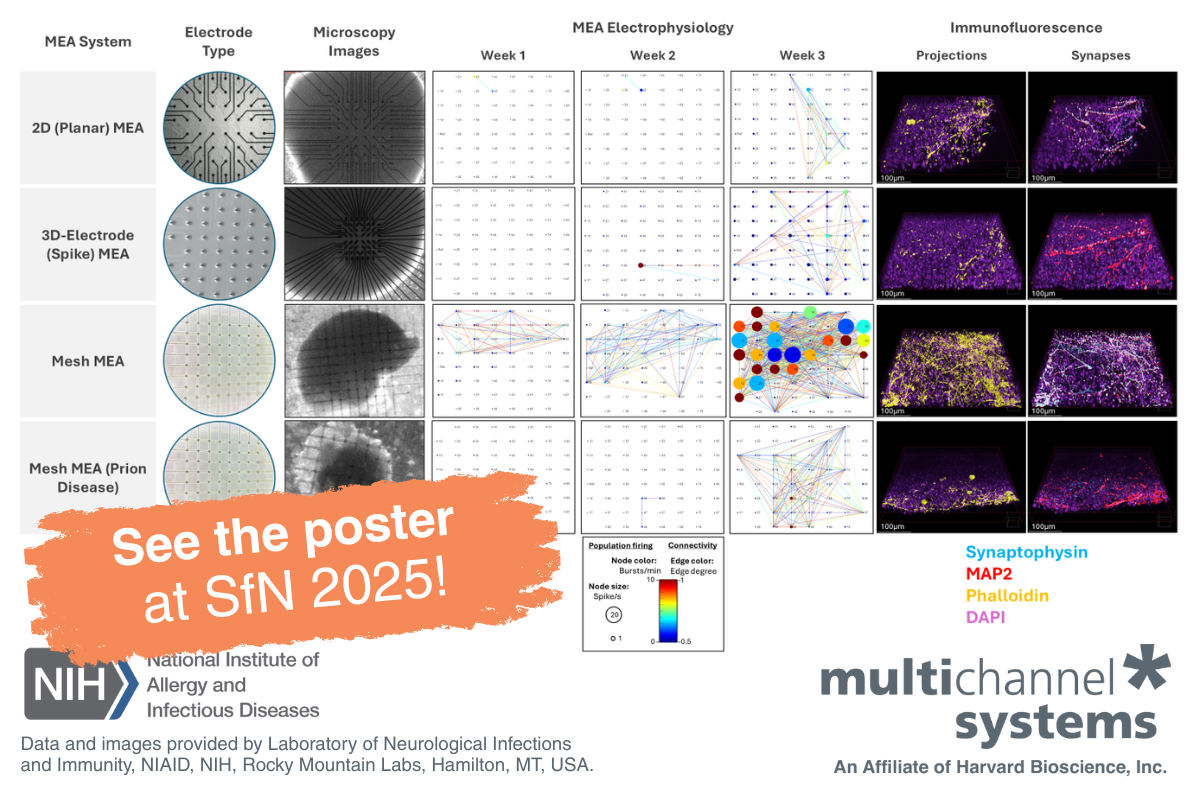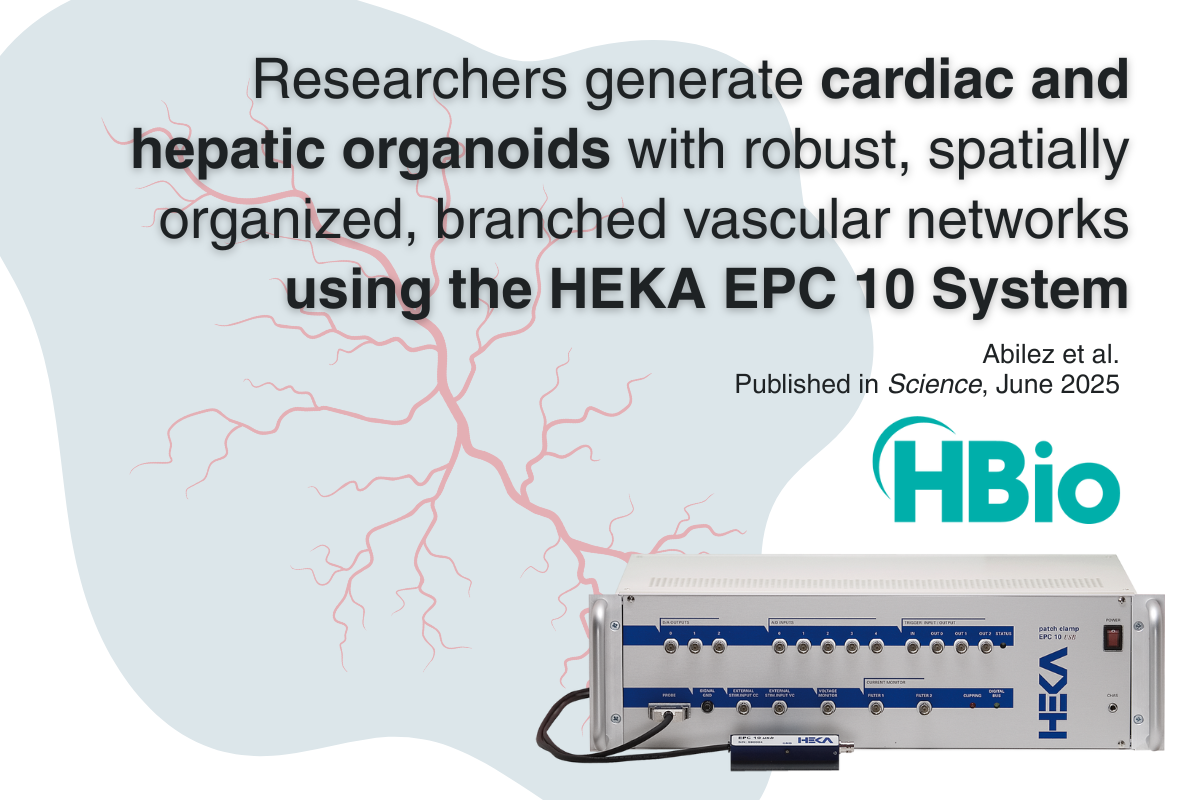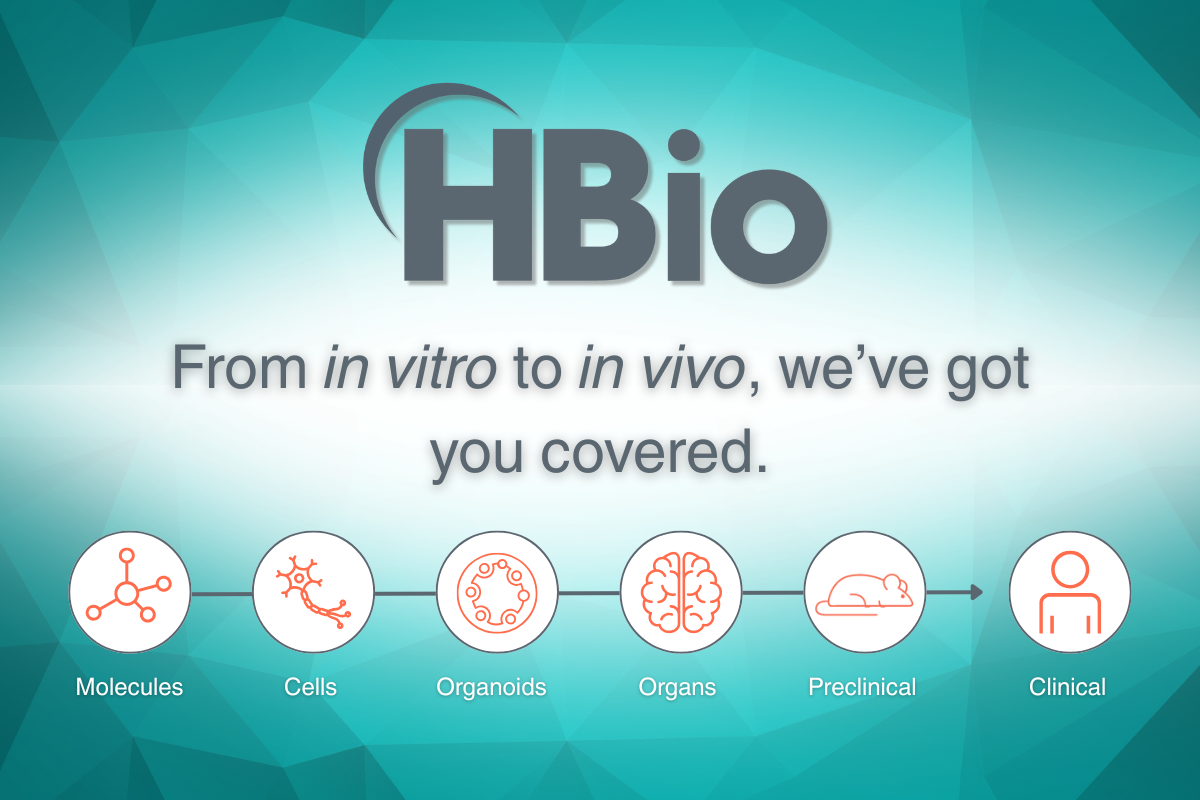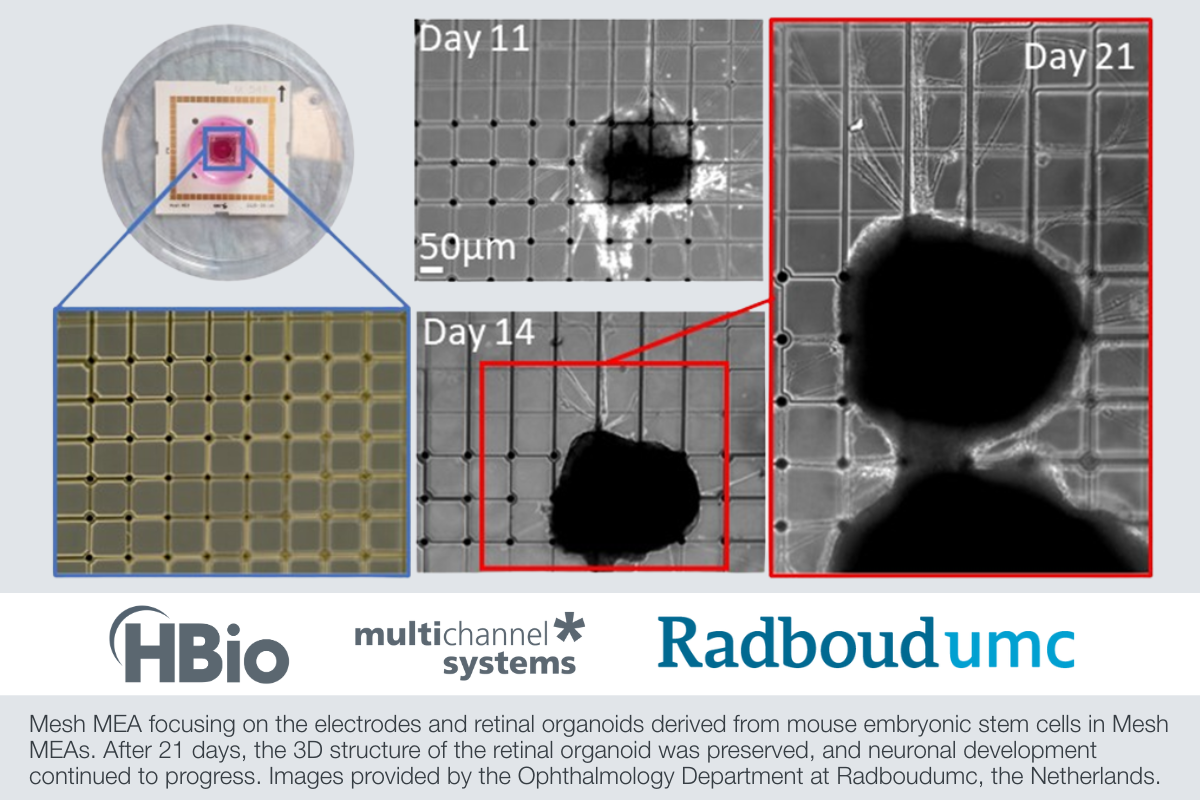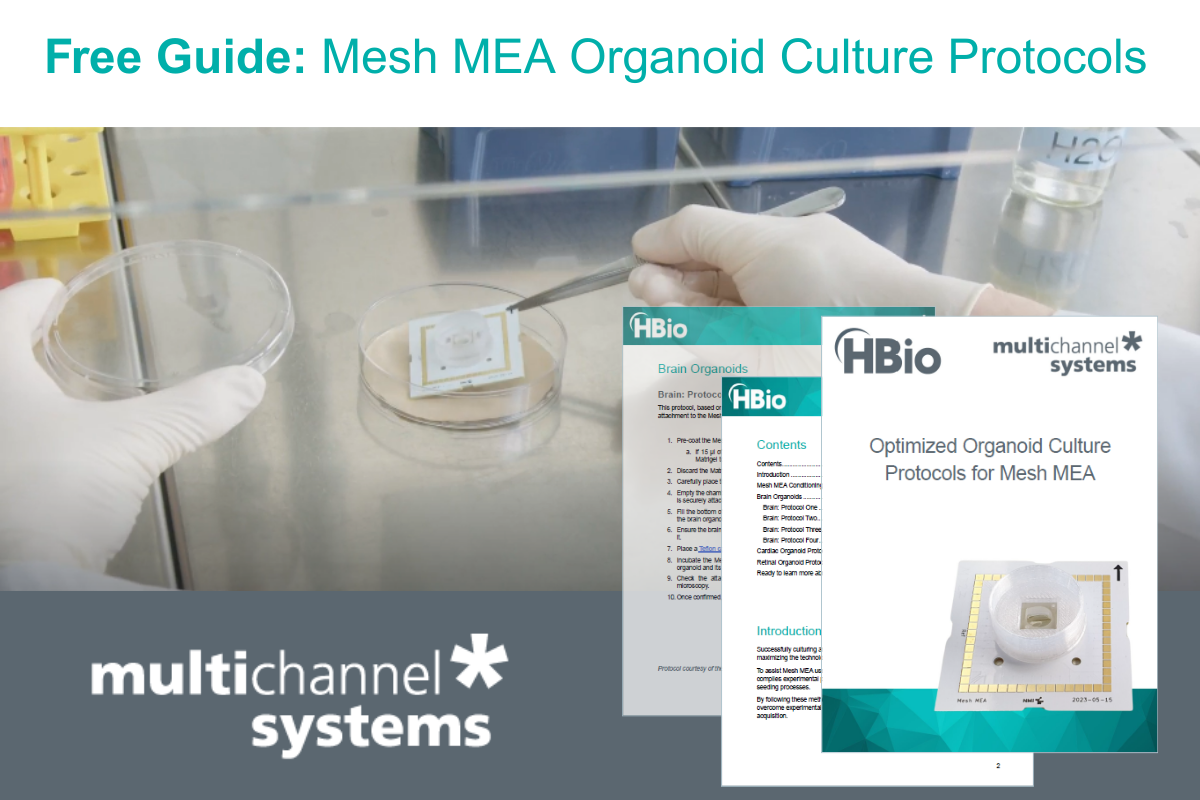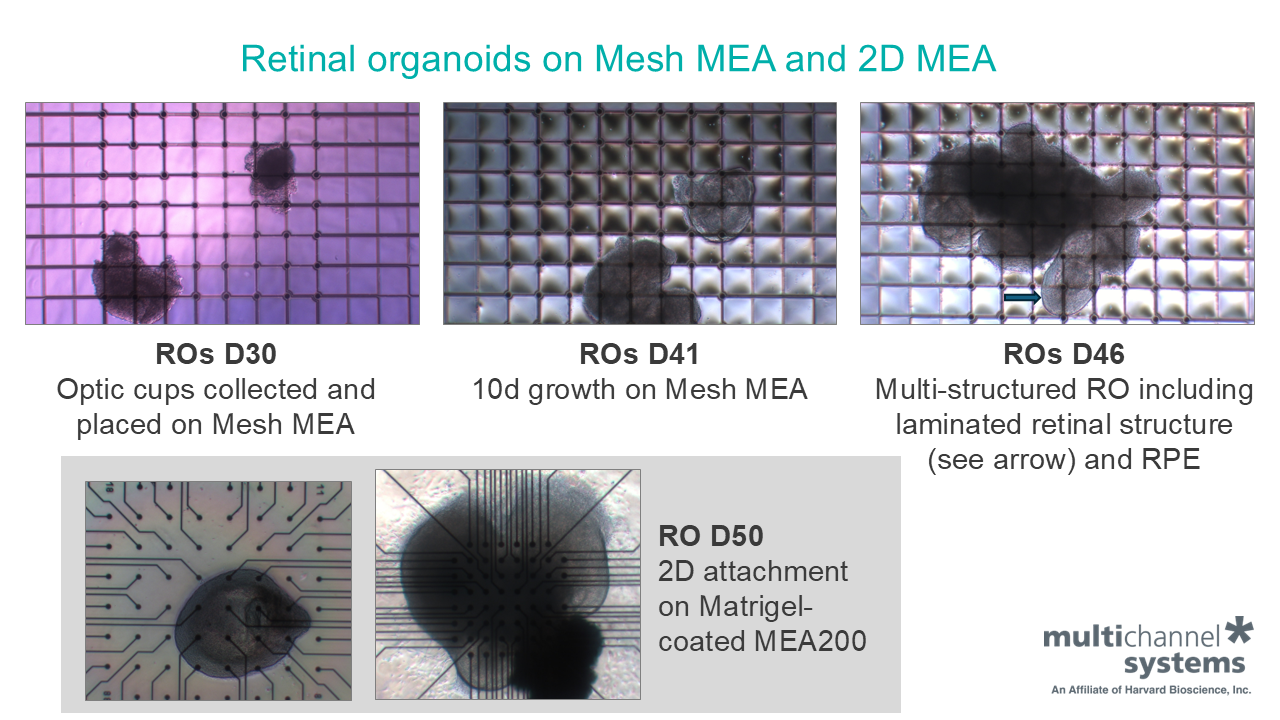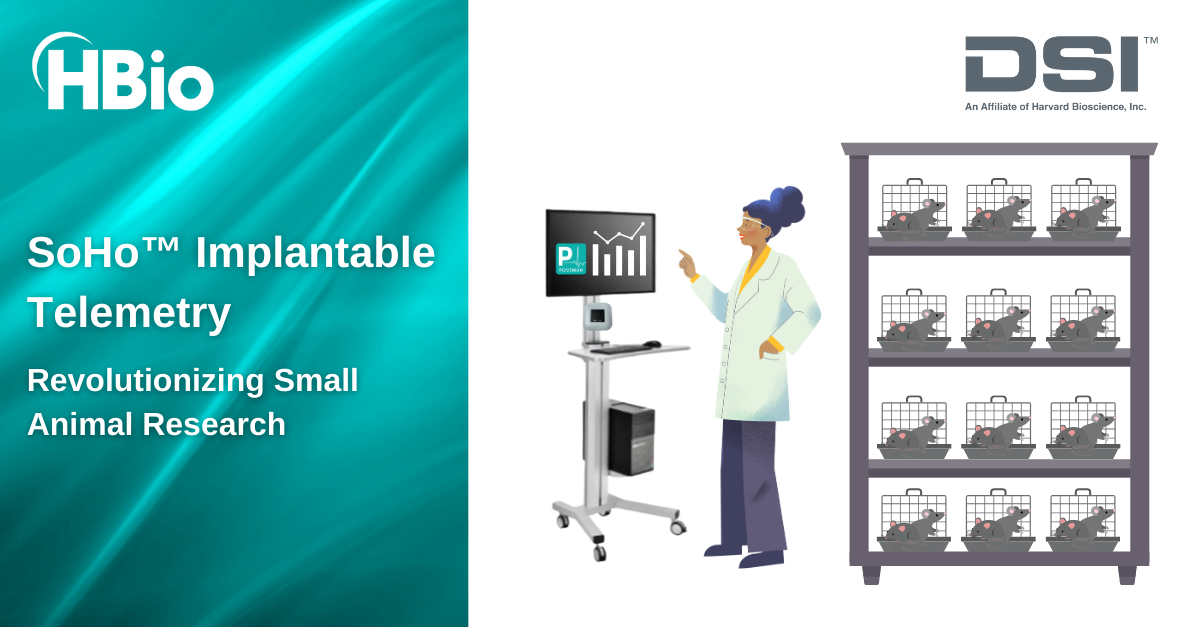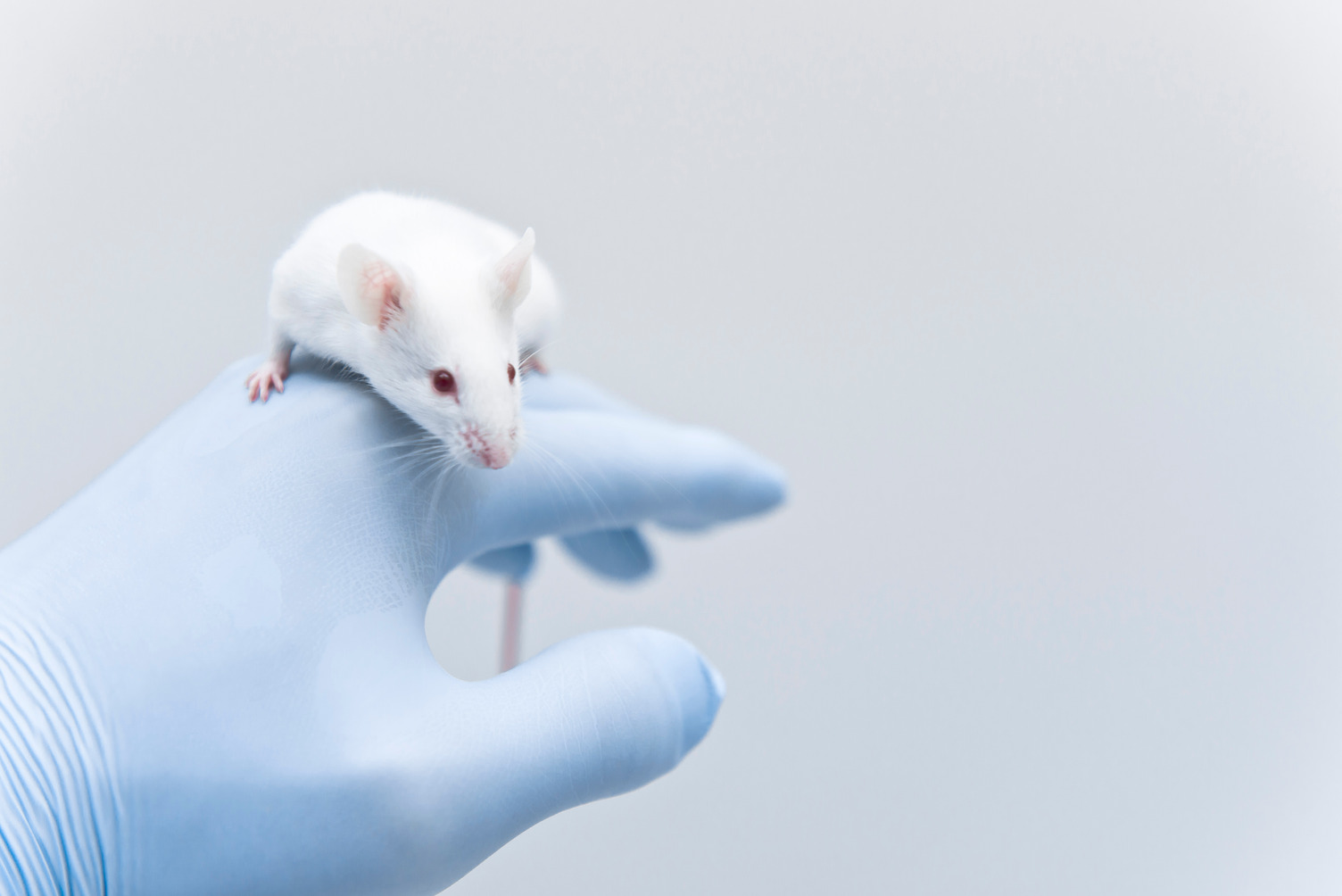Modeling Prion Disease and Neural Connectivity Using Mesh MEA
For this study, mature cerebral organoids (6-7 months old) were transferred to a Mesh MEA using a polyethyleneimine and laminin coating protocol and BrainPhys cell culture media. After 3 weeks in culture, COs displayed higher electrical activity on the Mesh MEA compared to planar MEA chips, which contained either flat or 3D-spike electrodes.
